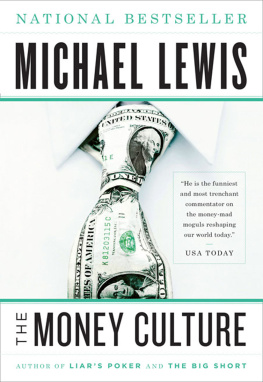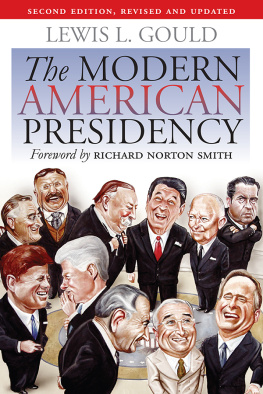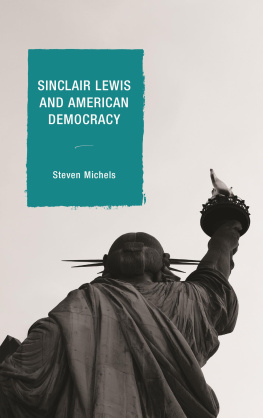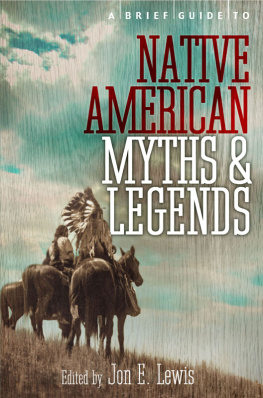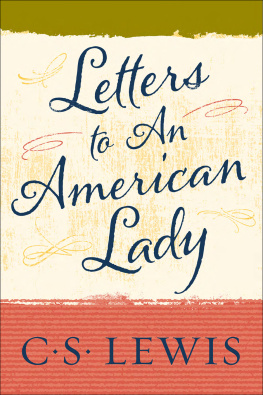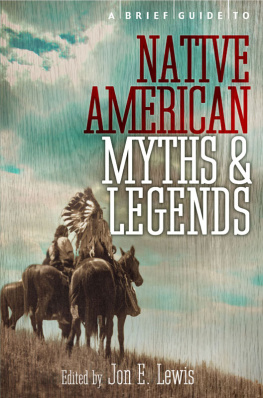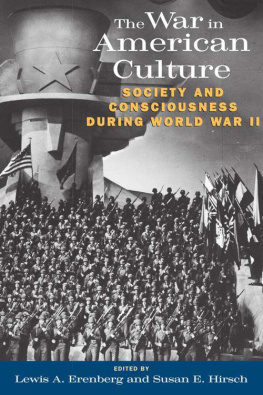Lewis - American wilderness: a new history
Here you can read online Lewis - American wilderness: a new history full text of the book (entire story) in english for free. Download pdf and epub, get meaning, cover and reviews about this ebook. City: New York;United States, year: 2007, publisher: Oxford University Press, Incorporated, genre: Politics. Description of the work, (preface) as well as reviews are available. Best literature library LitArk.com created for fans of good reading and offers a wide selection of genres:
Romance novel
Science fiction
Adventure
Detective
Science
History
Home and family
Prose
Art
Politics
Computer
Non-fiction
Religion
Business
Children
Humor
Choose a favorite category and find really read worthwhile books. Enjoy immersion in the world of imagination, feel the emotions of the characters or learn something new for yourself, make an fascinating discovery.

American wilderness: a new history: summary, description and annotation
We offer to read an annotation, description, summary or preface (depends on what the author of the book "American wilderness: a new history" wrote himself). If you haven't found the necessary information about the book — write in the comments, we will try to find it.
Lewis: author's other books
Who wrote American wilderness: a new history? Find out the surname, the name of the author of the book and a list of all author's works by series.
American wilderness: a new history — read online for free the complete book (whole text) full work
Below is the text of the book, divided by pages. System saving the place of the last page read, allows you to conveniently read the book "American wilderness: a new history" online for free, without having to search again every time where you left off. Put a bookmark, and you can go to the page where you finished reading at any time.
Font size:
Interval:
Bookmark:
American Wilderness
A NEW HISTORY
Edited by
MICHAEL LEWIS


Oxford University Press, Inc., publishes works that further
Oxford Universitys objective of excellence
in research, scholarship, and education.
Oxford New York
Auckland Cape Town Dar es Salaam Hong Kong Karachi
Kuala Lumpur Madrid Melbourne Mexico City Nairobi
New Delhi Shanghai Taipei Toronto
With offices in
Argentina Austria Brazil Chile Czech Republic France Greece
Guatemala Hungary Italy Japan Poland Portugal Singapore
South Korea Switzerland Thailand Turkey Ukraine Vietnam
Copyright 2007 by Oxford University Press, Inc.
Published by Oxford University Press, Inc.
198 Madison Avenue, New York, New York 10016
www.oup.com
Oxford is a registered trademark of Oxford University Press
All rights reserved. No part of this publication may be reproduced,
stored in a retrieval system, or transmitted, in any form or by any means,
electronic, mechanical, photocopying, recording, or otherwise,
without the prior permission of Oxford University Press.
Library of Congress Cataloging-in-Publication Data
American wilderness : a new history / edited by Michael Lewis.
p. cm.
Includes bibliographical references and index.
ISBN 978-0-19-517415-1; 978-0-19-517414-4 (pbk.)
1. Human ecologyUnited StatesHistory. 2. Geographical perceptionUnited States.
3. Wilderness areasUnited StatesPublic opinion. 4. Human beingsEffect of environment
onUnited States. 5. Public opinionUnited States.
6. United StatesEnvironmental conditions. I. Lewis, Michael L., 1971
GF503A64 2007
304.2dc22 2006048320
1 3 5 7 9 8 6 4 2
Printed in the United States of America
on acid-free paper
CHRISTOPHER CONTE is an associate professor of history at Utah State University. He studies the historical transformations of land use and land cover in East Africas highlands, as seen in Highland Sanctuary: Environmental History in Tanzanias Usambara Mountains (a Choice outstanding academic title for 2004).
BRADLEY P. DEAN (19542006), former editor of the Thoreau Society Bulletin, was best known for compiling, analyzing, and editing Thoreaus unpublished manuscripts, including Faith in a Seed and Wild Fruits. He was working on Thoreaus unpublished Indian Notebooks at the time of his tragic and early death.
MARK HARVEY, professor of history at North Dakota State University, is most recently the author of Wilderness Forever: Howard Zahniser and the Path to the Wilderness Act.
KIMBERLY A. JARVIS, author of Nature and Identity in the Creation of Franconia Notch, is assistant professor of history at Doane College.
BENJAMIN JOHNSON teaches in the History Department at Southern Methodist University. His publications include Revolution in Texas: How a Forgotten Rebellion and Its Bloody Suppression Turned Mexicans into Americans, and he is at work on a synthetic history of American conservation in the Progressive Era.
MICHAEL LEWIS, author of Inventing Global Ecology: Tracking the Biodiversity Ideal in India, 19471997, is an associate professor of history and the director of the Environmental Issues Program at Salisbury University.
ANGELA MILLER, professor of art history at Washington University, includes among her publications Empire of the Eye: Landscape Representation and American Cultural Politics, 18251875, winner of the John Hope Franklin Prize (American Studies Association) and the Charles Eldredge Prize (Smithsonian Institution).
CHAR MILLER, professor of history and director of urban studies at Trinity University, is the author and editor of numerous books, including the awardwinning Gifford Pinchot and the Making of Modern Environmentalism.
MELANIE PERREAULT, associate professor of history at Salisbury University, is the author of Early English Encounters in Russia, West Africa and the Americas 15301614 and co-editor of Colonial Chesapeake: New Perspectives.
MARK STOLL, associate professor of history at Texas Tech University, is the editor of a book series on world environmental history and the author of two books, including Protestantism, Capitalism, and Nature in America.
STEVEN STOLL, associate professor of history at Yale University, is the author of Larding the Lean Earth: Soil and Society in Nineteenth Century America and The Fruits of Natural Advantage: Making the Industrial Countryside in California.
PAUL SUTTER, author of Driven Wild: How the Fight against Automobiles Launched the Modern Wilderness Movement, is an associate professor of history at the University of Georgia.
JAMES MORTON TURNER is an assistant professor in the Environmental Studies Program at Wellesley College. His book The Promise of Wilderness: A History of American Environmental Politics will be published in 2008.
DONALD WORSTER, Hall Distinguished Professor of History at the University of Kansas, is the award-winning author of numerous books and is currently working on a biography of John Muir.
American Wilderness
AMERICAN WILDERNESS
An Introduction
Michael Lewis
Shining Rock. The Big Horn Mountains. Cumberland Island. Gates of the Arctic. Mojave. From the Absaroka-Beartooth to Yosemite, the names alone thrill. These are some of the 677 federally designated wilderness areas of the United States, the most carefully preserved landscapes in the nation. In many of these places, you can walk for days without seeing another person or any obvious signs of human artifice, should you choose to do so. Outside this federal national wilderness system, more wilderness is preserved in our national parks, our national forests, and the numerous other categories of federally managed land. Still more wilderness can be found in private propertyfrom estates and hunting clubs to Nature Conservancy sites. In a world that is increasingly paved and groomed, such places are precious. And given the continued thirst of our consumerist society for resources, their existence is at first glance surprising. The nation that, arguably, most fully has embraced industrial capitalism and consumer culture, a nation whose wealth has been predicated on its ability to harvest and transform an unusually rich bounty of natural resources, simultaneously developed rationales and models for setting aside landscapes (often spectacular ones) as permanent wildlands. This book explores the apparently contradictory history of Americans and their wilderness.
Twenty-first-century Americans love wilderness. We idealize it, we romanticize it, we hike in it, we camp in it, we long to experience it. So many Americans want to enjoy wilderness that recreational specialists have devised low-impact camping techniques so that thousands of U.S. citizens can visit the same mountain or the same forest and feel as if they are the first to set foot in it. We name our automobiles after mountain ranges and rugged Western landscapes. We advertise beer with wildernessThe taste of the Rockies, or Come to the mountains, come to Busch beer. We hang pictures of wilderness on our walls. People dress every day as if they were heading out on a wilderness hike, carrying backpacks instead of briefcases, wearing polar fleece and hiking boots. Our national park system is the oldest in the world, and every year millions of Americans make pilgrimages to these spectacular, even sacred, sites. The U.S. environmental organizations that focus upon the preservation of wilderness and wild species have combined memberships reaching into the millions.
Next pageFont size:
Interval:
Bookmark:
Similar books «American wilderness: a new history»
Look at similar books to American wilderness: a new history. We have selected literature similar in name and meaning in the hope of providing readers with more options to find new, interesting, not yet read works.
Discussion, reviews of the book American wilderness: a new history and just readers' own opinions. Leave your comments, write what you think about the work, its meaning or the main characters. Specify what exactly you liked and what you didn't like, and why you think so.

